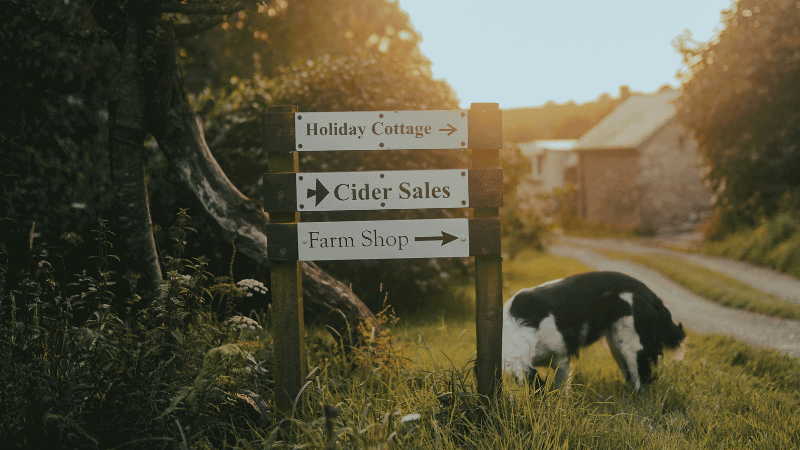Categories
News: How Clarkson's Clause Has Changed Agricultural Permitted Development

In a bid to boost rural economies, the government has introduced more leniency surrounding permitted agricultural development.
Under the new "Clarkson's Clause," farmers can now convert disused agricultural buildings into multiple homes and shops without planning permission. This change is part of a broader effort to cut red tape and facilitate business diversification for farmers.
Inspired by Jeremy Clarkson's struggles with the West Oxfordshire District Council, as depicted in his series "Clarkson's Farm," the Government has announced new extensions to permitted development rights (PDRs) to bolster rural development.
The extended PDRs will make it easier for farmers to repurpose old buildings, providing new opportunities for commercial use. Farming Minister Mark Spencer highlighted the benefits, stating the move will reduce "needless bureaucracy" and support business growth.
In "Clarkson's Farm," Clarkson famously had to close a restaurant he opened on his Diddly Squat farm after the local council ordered its closure in August 2022, rejecting two previous planning applications. The new regulations aim to prevent similar issues for other farmers.
Previously, converting a barn to a residential property was allowed under Class Q, but numerous restrictions limited its utility. The updated rules remove many of these restrictions, permitting small extensions and making Class Q more applicable by relaxing the requirement for exclusive agricultural use.
The requirement to secure prior approval remains, and developments must provide suitable access to public highways. Farmers can now convert a building into up to 10 homes, doubling the previous limit of five.
Additionally, land can now be converted into training centres and outdoor sporting facilities without a planning application, benefiting equestrian facilities. Class R's flexibility, which already allows the change of use from barns to commercial purposes, has been expanded to include a broader range of uses.
For instance, general industrial activities and outdoor sports, along with existing storage, distribution, hotel, and general commercial uses, have increased the permitted floor space for these changes from 500 m² to 1,000 m².
While the new PDRs offer significant opportunities, it's crucial to note that conditions and requirements apply generally and specifically to each Class of Rights. These must be reviewed to ensure compliance before proceeding with any development projects.
Related: How to Get a Construction Loan if You're a First Time Developer
Agricultural Permitted Development & Retrospective Planning Permission
This will likely be welcome news for individuals who have been looking into retrospective planning permission for previous agricultural developments. The new legislation means fewer restrictions for farmers wanting to capitalise on their land and much less paperwork for a variety of mixed-use agricultural projects.
As seen on Clarkson's Farm, heavy regulations prevented farmers from converting property on their land, resulting in a number of retrospective planning permission requests getting rejected.
What is Retrospective Planning Permission?
Retrospective planning permission is when an individual applies for approval for developments or conversions after the work has commenced without prior consent from the local planning authority.
This situation can arise for various reasons, such as unintentional oversight during building works or changes initially believed to be compliant. Applying for retrospective planning permission can be complex, often requiring detailed plans and justifications for the unauthorised work.
Common reasons for seeking retrospective planning permission include:
Lack of Awareness - Some property owners may not realise that planning rules apply to their changes.
Time Constraints - The lengthy planning permission process may lead some to proceed without prior approval.
Expectation of Leniency - Some may hope changes go unnoticed or unchallenged, seeking default approval after a set period.
These new rules eradicate this issue for the most part and make it easier for farmers to diversify their income through property development. Not only does this allow farmers to make the most out of their land, it boosts local economies and encourages farmers to provide sustainable housing by converting unused commercial buildings into homes.
Related: How to Finance a Barn Conversion Using a Bridging Loan

Finance a Farm Development
Whether it's a barn conversion or a farm shop, agricultural development can be very lucrative, but it also requires a lot of capital to get started. You may not have cash like this at hand, but funding is still very much within reach.
At Clifton Private Finance, we have a dedicated team of specialist finance brokers who have access to bespoke development products and the best rates on the market.
From start to finish, your dedicated broker will guide you through the process, be readily available to answer any questions and relieve your stress and hassle.
Our strength is our ability to access various funding solutions from high street and private banks, specialist lenders, family offices and wealth managers. We also have connections with private investor fund groups. We can meet the needs of a wide variety of property investors and developers.
Call us on 0203 900 4322 to discuss your requirements, or book a free consultation below.











